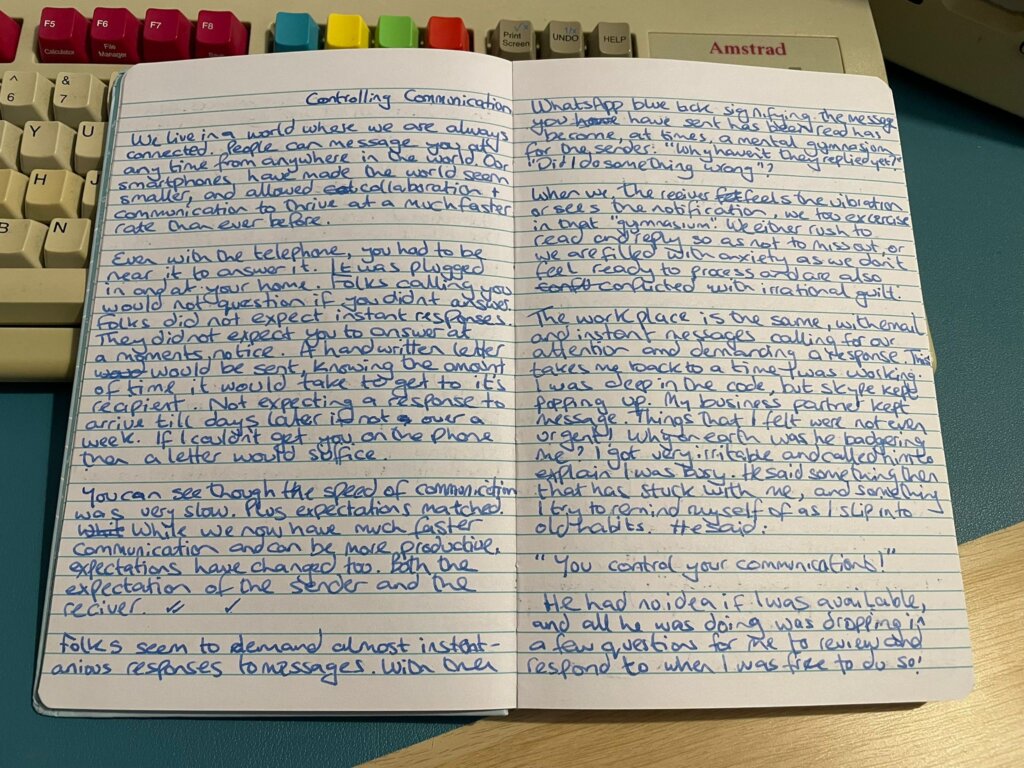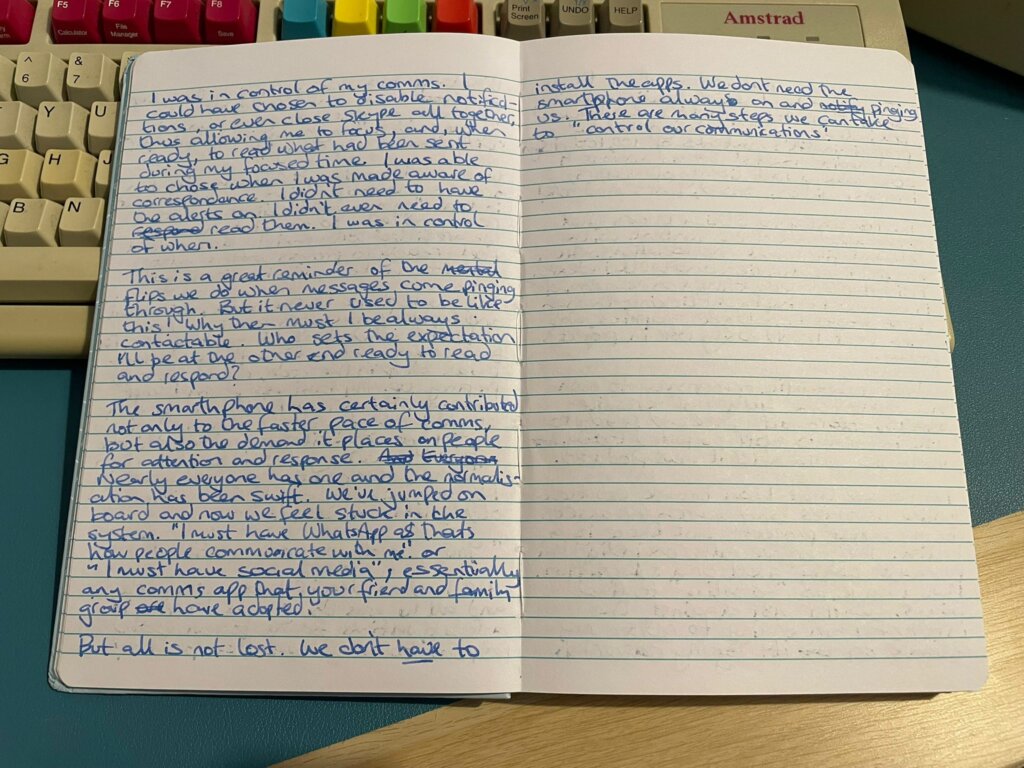We live in a world where we are always connected. People can message you at any time from anywhere in the world. Our smartphones have made the world seem smaller, and allowed collaboration and communication to drive at a much faster rate than ever before.
Even with the telephone, you had to be near it to answer it. It was plugged in and at your home. Folks calling you would not question if you didn’t answer. Folks did not expect instant responses. They did not expect you to answer at a moment’s notice. A handwritten letter would be sent, knowing the amount of time it would take to get to its recipient. Not expecting a response to arrive till days later if not over a week. If I couldn’t get you on the phone then a letter would suffice.
You can see though the speed of communication was very slow. Plus expectations matched. While we now have much faster communication and can be more productive, expectations have changed too. Both the expectation of the sender and the receiver.
Folks seem to demand almost instantaneous responses to messages. With the WhatsApp blue tick signifying the message you have sent has been read, has become, at times, a mental gymnasium for the senders. “Why haven’t they replied yet?” “Did I do something wrong?”
When we the receiver feels the vibration or sees the notification, we too exercise in that “gymnasium”. We either rush to read and reply so as not to miss out or we are filled with anxiety as we don’t feel ready to process and we also conflicted with irrational guilt.
The workplace is the same, with email and instant messages calling for our attention and demanding a response. This takes me back to a time I was working. I was deep in the code, but Skype kept popping up. My business partner kept messaging. Things that I felt were not even urgent! Why on earth was he badgering me? I got very irritable and called him to explain I was busy. He said something then that has stuck with me, and something I try to remind myself of as I slip into old habits.
He said:
“You control your communication!”
He had no idea if I was available, and all he was doing was dropping in a few questions for me to review and respond to when I was free to do so! I was in control of my comms. I could have chosen to disable notifications, or even close Skype all together, thus allowing me to focus, and when ready to read what had been sent during my focused time. I was able to choose when I was made aware of correspondence. I didn’t even need to read them. I was in control of when.
This is a great reminder of the flips we do when messages come pinging through. But it never used to be like this! Why must I be always contactable? Who sets the expectation I’ll be at the other end ready to read and respond?
The smartphone has certainly contributed not only to the faster pace of comms, but also the demand it places on people for attention and response. Nearly everyone has one and the normalisation has been swift. We have jumped on board and now we feel stuck in the system. “I must have WhatsApp. That’s how people communicate with me” or “I must have social media”, essentially any comms app that your friend and family group have adopted.
But all is not lost. We don’t have to install the apps. We don’t need the smartphone always on and pinging us. These are many steps we can take to “control our communications”.
No AI was used to write this post. Just me, and my messy handwriting! 🙂


Featured image by Samuel Cruz on Unsplash
